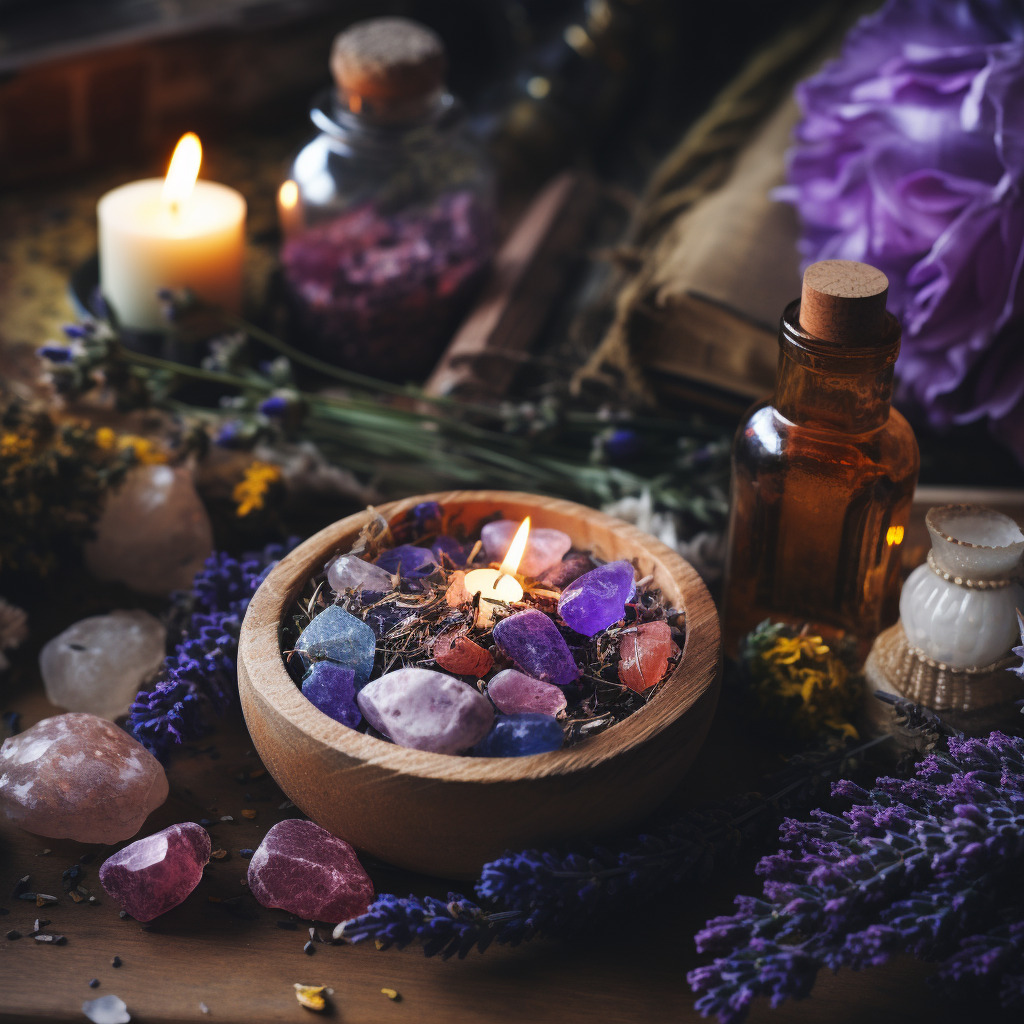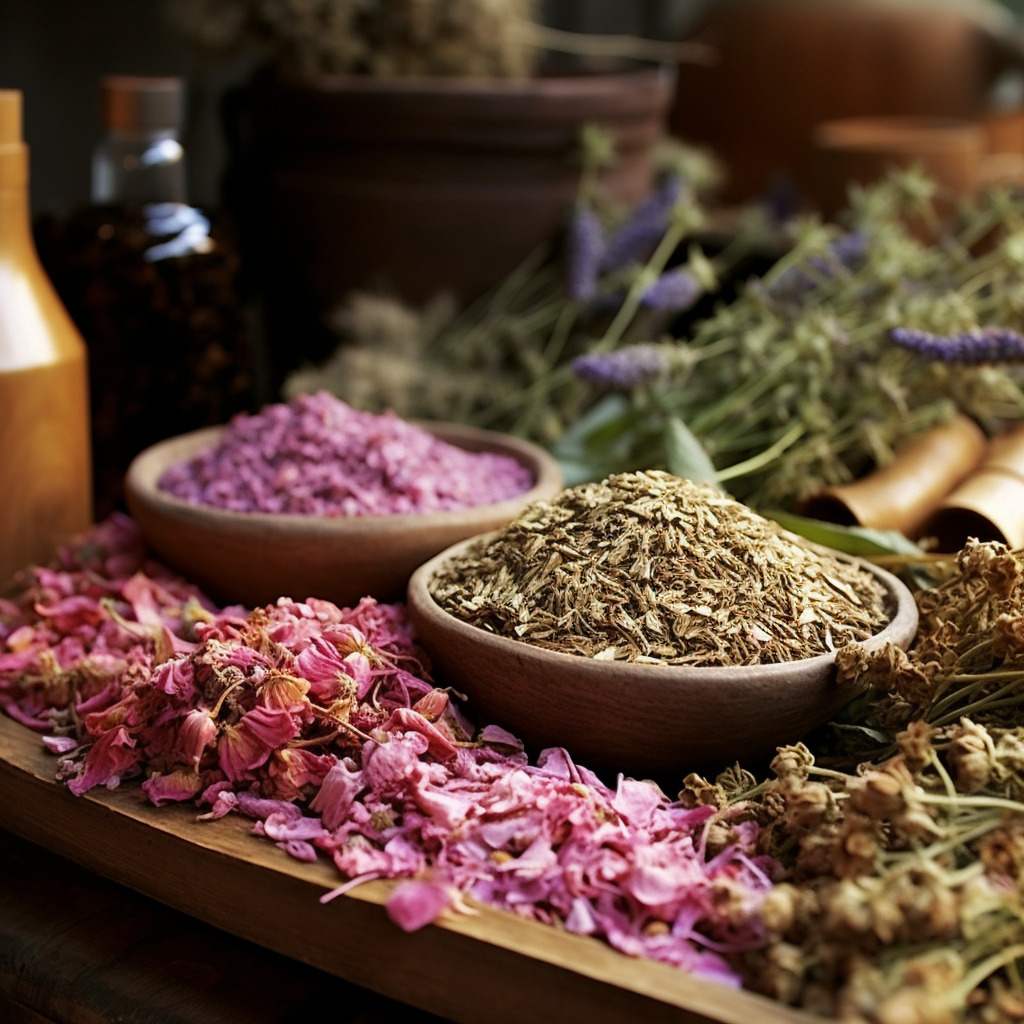
A Journey Towards Insight and Inner Peace
For millennia, spiritual seekers and healers have recognized the power of integrating practices that engage the whole person – mind, body, and spirit. In recent times, more people have been drawn to alternative modalities that embrace a holistic approach to well-being. Three therapies in particular – Reiki energy healing, tarot divination, and aromatherapy essence use – beautifully complement one another to provide balanced care.
This article explores how Reiki, tarot, and aromatherapy can work in harmony to help clients achieve relaxation, insight, and overall wellness. We will examine how each practice functions, their respective benefits, and how they can be effectively combined during sessions. Additionally, we will cover some of the most commonly used essential oils in these spiritual techniques and their intended effects. The integration of Reiki, tarot, and aromatherapy illustrates the potential for holistic healing methods to provide multidimensional support when thoughtfully blended based on the client’s needs. By addressing the physical, mental, emotional, and spiritual together, these modalities offer a path to greater wisdom, balance, and therapeutic benefit.
The Scented History of Aromatherapy
Aromatherapy, the use of essential oils from plants for healing purposes, has a long and storied history. human beings have turned to aromatics for their natural therapeutic benefits for thousands of years.
The first recorded use of plants for medicine was in Ancient Egypt around 3500 BC. Ancient texts describe Egyptian priests using balms, resins, and oils from plants like cinnamon, myrrh, rose, and lily in rituals and healing ceremonies. Frankincense, peppermint, eucalyptus and saffron were commonly used for headaches, wound healing, and skin care.
India also has a long tradition of aromatherapy dating back over 3,000 years to the Vedic period. Herbs and aromatic plants were mentioned in many Hindu religious texts and used in spiritual rituals and Ayurvedic medicine. Sandalwood, turmeric, cardamom, ginger and many other oils were applied to treat ailments.
In China, the use of herbs and incense for healing is mentioned in early Taoist scriptures and traditional Chinese medicine texts. tea tree, ginger, cinnamon and other essences were commonly burned in temples for ceremonial uses. Aromatic plant extracts played a role in acupuncture and Chinese herbal formulas as well.
By the 10th century, Arab scholars had perfected the process of distilling essential oils like rose, carnation, lily, peppermint and sage. These oils were prized for their beautiful scents but also their medicinal properties. Fragrances played an important role in Islamic medicine and culture during the time.
In the early 20th century, a French chemist named René-Maurice Gattefossé coined the term “aromatherapy” after discovering the healing power of lavender oil when he applied it to a burn on his hand. He shared his discoveries in his 1928 book Aromathérapie, popularizing the use of essential oils in modern society.
Today, aromatherapy is used all over the world both in home remedies and clinical settings. Essential oils are widely touted as natural ways to improve both physical and mental well-being. While the historical practices have evolved over time, aromatherapy retains its roots as an ancient, holistic healing technique.
Scented Pathways: Spirituality of Aromatherapy
Aromatherapy, the use of essential oils from fragrant plants and herbs, has long been intertwined with spiritual practices across many cultures. Beyond the physical healing properties, many have recognized the power of aromatherapy to open doorways to the spiritual realm.
Purification is one of the most ancient uses of botanical aromatics. Burning incense or diffusing oils of herbs like sage and frankincense is believed to cleanse a space, body or mind of negative energy. The scent carries away impurities, creating an energetically fresh start. These practices originate from indigenous traditions and continue today in religious ceremonies.
Meditation is enhanced by calming or uplifting aromas like lavender, cedar, or ylang ylang. The fragrances promote focus, presence, and inner reflection. Specific essential oils may also connect to different chakras and energetic centers throughout the body. For example, jasmine at the crown chakra encourages openness to the divine.
Rituals and ceremonies from weddings to funerals incorporate fragrance to convey the significance of the event. Anointing oils symbolize blessings. The burning of incense marks sacred time and space. Diffusing essential oils sets the energetic tone. The smells activate a profound sensory experience that transcends the mundane.
Prayer can be supported by oils such as lotus, spruce or frankincense. The scents stimulate feelings of inspiration, serenity and devotion, acting as an offering to the divine. Flowers hold deep spiritual meaning, and their essences allow connection to the living spirit of nature’s beauty.
Beyond religious contexts, aroma’s link between scent and memory gives it uncanny power. Essential oils can unlock buried emotions and trauma, or access euphoric states from the past. Aromatherapy’s role in healing makes it a catalyst for self-actualization.
Lastly, aromatic botanicals such as rose and clove can be used in divination ritual or personal reflection. Our sense of smell is primal and linked to intuition. Therefore, aromatherapy allows deeper insight into relationships, purpose, and questions of the soul.
The spiritual dimensions of our scent experience remain mysterious. Yet aromatherapy harnesses this mystical gateway for transformation from the mundane to the sacred.
Scented Energy: Aromatherapy in Energy Healing
Aromatherapy, the use of essential oils from plants, interfaces intriguingly with the world of energy healing. Practices like Reiki and healing touch rely on the channeling of universal energy to bring balance, while essential oils also work holistically on the physical, mental and energetic planes. Using aromatherapy in energy healing leverages the power of scent within a vibrational approach to wellness.
Much of energy healing works with chakras, the energy centers linked to physical and emotional states. Different essential oils have affinities with particular chakras. For example, rosemary stimulates the root chakra for stability, while lavender calms the third eye chakra for deeper insight. Practitioners may incorporate specific oils based on the chakras needing realignment.
Essential oils themselves also emit vibrational frequencies that interact with human energy fields. Depending on the oil, the vibration can cleanse blockages, activate stagnant areas, or soothe over-activity. Some claim that certain oils boost spiritual vibration levels overall. Scent becomes a way to re-tune the body’s energies.
In energy healing sessions, aromatherapy may be used in massage oils, acupressure, baths or compresses on the body. Inhalation and diffusion of essential oils around the space can also purify energy. Client and practitioner intent guides how the oils’ properties shift dynamics in the energy field.
Energetic harmonizing explains why particular scents impact mood states and emotions. Trauma and “stuck” feelings manifest within the energy body. Essential oils can release blockages to transform the underlying energy pattern. Peace or empowerment results from energetic shifts.
While clinical evidence for energy healing remains limited, research does confirm that smell impacts stress, anxiety, depression and pain. Exploring the energetic uses of aromatherapy within a vibrational framework offers avenues for holistic wellness. When integrated by knowledgeable practitioners, aromatherapy’s versatility may indeed enhance the benefits of energy work.
The Integration of Reiki, Tarot, and Aromatherapy
Alternative healing modalities often complement each other beautifully. Three practices – Reiki energy healing, tarot divination, and aromatherapy essence use – integrate seamlessly for holistic wellbeing. Each addresses different facets of the human experience – physical, mental, emotional, and spiritual.
Reiki channels universal energy to bring balance to the body and mind. Sessions involve a light hands-on touch over energy centers and meridians to break up blocks and accelerate healing. Reiki can aid stress, pain, digestion, immunity, grief, trauma, and more by re-balancing the client’s natural vibration.
Tarot card reading provides intuitive guidance by interpreting the meanings of symbolic archetypes. Practitioners can perform spreads focused on relationships, career, life purpose, and situations. The images spark introspection and realizations in the seeker. Tarot illuminates inner wisdom and possible future outcomes for decision-making.
Aromatherapy employs essential oils from plants to benefit body and mind through scent. Inhalation of essences like lavender, eucalyptus, rosemary and orange can relieve anxiety, nausea, headaches, allergies, and other ailments. Their fragrance also impacts mood, focus and spirituality.
Each technique brings specific advantages that complement the others. Reiki restores energetic flow, tarot provides spiritual direction through symbolism, and aromatherapy’s scents trigger physical and emotional healing. Their integration allows holistic care tapping into multiple facets of well-being simultaneously.
For example, a Reiki practitioner may provide a session while the client draws tarot cards reflecting on life issues. Essential oils matching the card meanings or chakra imbalances support the energetic shifts through scent association. The physical, mental, and spiritual combine for transformative results.
Responsible blending of therapeutic modalities leverages their respective strengths. Reiki, tarot and aromatherapy used together illustrate the potential for clients to benefit exponentially when practices interweave in service of the whole person – body, heart, mind and spirit.
Fragrant Remedies: Reiki, Tarot and Aromatherapy:
- Lavender – Relaxing, balancing, eases anxiety and stress
- Rose – Uplifting for the heart and spirit, encourages love and harmony
- Frankincense – Purifying, aids meditation and ritual, deepens spiritual connection
- Sandalwood – Calming, soothing, releases tension, enhances meditation
- Bergamot – Stimulating and stabilizing for the emotions, reduces anxiety
- Chamomile – Calming, supports sleep and relaxation
- Ylang Ylang – Uplifting, sensual, soothing, confidence building
- Lemon – Cleansing, stimulates and clarifies the mind
- Peppermint – Mental stimulant, energizing, improves focus and concentration
- Clary Sage – Euphoric, stabilizes emotions, alleviates stress
- Rosemary – Energizing, improves memory and focus, pain relief
- Jasmine – Uplifting, enhances self-confidence, hopefulness
- Eucalyptus – Clearing congestion, clarifying for mind and energy, cleansing
- Tea Tree – Purifying, immune-boosting, cleansing for spaces and aura
- Orange – Joyful, uplifting, confidence building, emotional warmth
- Cedarwood – Grounding, calming, purifying, helps deepen meditation

A Integrated Path to Healing
The complementary nature of Reiki, tarot readings, and aromatherapy highlights the potential for holistic healing when practices are integrated. Each modality has its own therapeutic advantages that address different aspects of well-being. Reiki restores and balances energy flow, tarot provides spiritual guidance through symbolic interpretation, and aromatherapy’s use of essential oils triggers physical and emotional benefits. Using these techniques together allows for multidimensional care.
Clients can experience enhanced relaxation, insight, and perspective when the physical, mental, emotional, and spiritual elements are addressed in unison. The combination results in more than the sum of the individual parts. Responsible blending by knowledgeable practitioners allows each modality strengths to shine.
While more research is still needed, the rich history behind these practices validates their usefulness for many. Reiki, tarot and aromatherapy used in harmony can empower clients on their journey toward inner wisdom, personal growth, and holistic well-being. By tapping into the intricate connections between mind, body and spirit, these modalities illuminate the profound potential of integrative healing.
